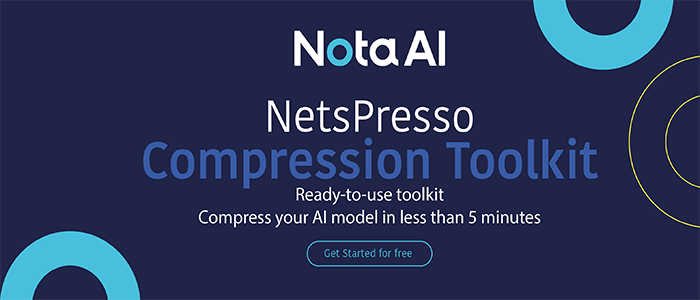A New Study Shows That An Apple Watch Can Help To Detect Asymptomatic Heart Disease Using Artificial Intelligence
This Article Is Based On The Research 'Evaluation of ECG Transmission and AI Models Using Apple Watch ECGs and Symptoms Data Collected Using a Mayo iPhone App'. All Credit For This Research Goes To The Researchers Of This Paper 👏👏👏 Please Don't Forget To Join Our ML Subreddit
The true brilliance of the Apple Watch as a health gadget is in the algorithms that evaluate and draw inferences from the raw data collected by its sensors.
It is not a level for medical devices. The EKG on the Apple Watch only captures information from one place on the user’s wrist. As a result, scientists set out to find a better approach to improve the function’s utility. Artificial intelligence systems have been developed to detect small signals in data that might be linked to cardiac disease.
The difficulties in correctly building these algorithms prevent features like body temperature and blood pressure sensors from being implemented, but Apple isn’t the only company working on these issues. The whole healthcare business strives for improved techniques to detect health problems that go unnoticed.

Year each year, smartwatches get better, with additional features to help us track our health. These smartwatches aren’t meant to be used for medical purposes. They are unable to diagnose us. They may, however, assist us in taking care of ourselves and give data that can be utilized during doctor appointments. The Apple Watch contains an ECG function added to the device in 2018. It can detect atrial fibrillation and generate health reports. Many physicians encourage this feature since it makes it easy to get additional information.
This dilemma inspired Apple to add an ECG and abnormal heart rhythm warnings to the Apple Watch Series 4 in 2018, allowing many people to find that they have atrial fibrillation (Afib). This common cardiac ailment occurs periodically and can go unnoticed for years.
It’s something an Apple Watch is considerably less likely to overlook because, unlike diagnostic equipment at your local hospital, most people wear their watch for several hours every day.
Although atrial fibrillation is reasonably straightforward to identify when it occurs, detecting a failing heart pump, also known as left ventricular dysfunction, usually necessitates far more extensive testing.
“Left ventricular dysfunction, or a weak heart pump, affects 2% to 3% of individuals worldwide, and up to 9% of those over 60,” said Paul Friedman, a Mayo Clinic researcher involved in the study. “It might be asymptomatic or cause shortness of breath, limb swelling, or racing heartbeats.” What matters is that once a weak heart pump is identified, there are several life-saving and symptom-preventing therapies available.
The Research
A conventional ECG in a hospital lab maps the electrical impulses from the heart using 12 electrodes placed on the patient’s chest, arms, and legs. The connecting point on your wrist is the only “lead” on the Apple Watch ECG.
It’s significantly less complex than a full ECG, and several physicians were concerned about accuracy issues and misdiagnoses in the early days of the tool. On the other hand, medical researchers have been seeking methods to make the most excellent possible use of that data as time has passed.
In this scenario, Mayo Clinic researchers updated a known algorithm for detecting a weak cardiac pump in typical 12-lead ECG devices to work with the single-lead data from the Apple Watch.
Itzhak Zachi Attia, Ph.D., the leading AI scientist in the Mayo Clinic’s Department of Cardiovascular Medicine, led the effort. Dr. Attia “developed an adaptation approach that converted single-lead data into signals that the algorithm could interpret.”
It was time to put the algorithm to the test after it had been developed. The Mayo Clinic invited 2,454 of its patients to participate in the research.
Over six months, they securely transferred 125,610 ECGs from the Apple Watch from 46 states and 11 countries.
Participants took ECG readings twice a month on average, and 92 percent of individuals in the research used the ECG app many times.
So, at best, an Apple Watch will take one or two years to diagnose patients with this particular cardiac ailment. The researcher is confident that AI will alter medicine in the future since low-cost health-tracking devices will increasingly be able to detect significant diseases at an early stage without requiring patients to visit a hospital and undergo costly or time-consuming testing.
“Remarkably, AI can turn a consumer watch ECG signal into a detector of this condition,” the researcher continued. “This condition would normally necessitate an expensive, sophisticated imaging test like an echocardiogram, CT scan, or MRI.” “This is how medicine is changing: you can diagnose serious disease from the comfort of your own couch.”
Conclusion:
Mayo Clinic researchers are taking Apple Watch to the next level. Employing data from the Apple Watch ECG app, they’re using a powerful artificial intelligence (AI) system they built to assist diagnose patients with a weak cardiac pump.
Because the Apple Watch ECG takes data from only one place on the wearer’s wrist, it’s unlikely to be as reliable as a 12-lead ECG examination in a clinic. Researchers are employing AI algorithms to find minuscule signals in the data that may correspond to cardiac abnormalities to transform Apple Watch ECG data into something therapeutically helpful.
Research: https://clinicaltrials.gov/ct2/show/NCT05324566
Reference: https://newatlas.com/medical/apple-watch-ecg-detects-weak-heart-pump-disease-mayo/
Credit: Source link


Comments are closed.